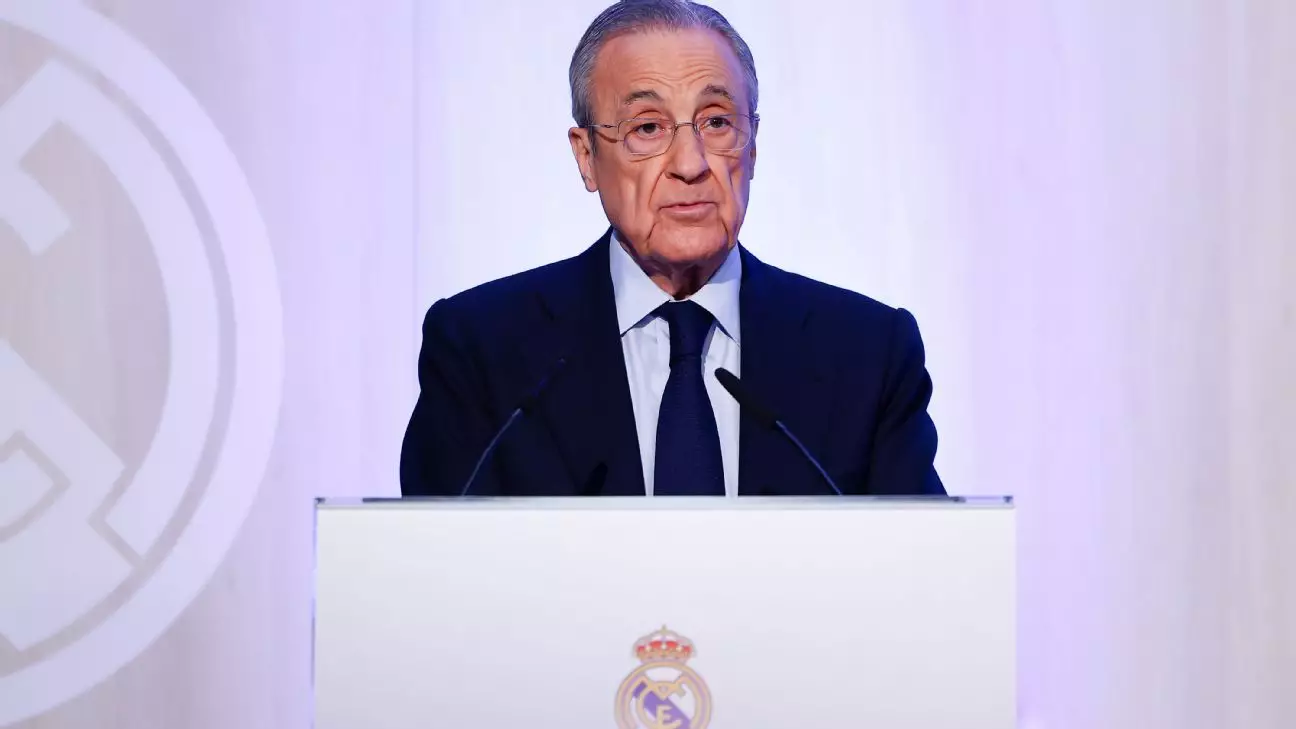The landscape of football is often shaped by powerful figures whose decisions resonate far beyond the pitch. One such figure is Florentino Pérez, recently re-elected as president of Real Madrid for another four-year term. This unopposed election serves as a testament to Pérez’s long-standing influence and stability within one of the world’s most prestigious football clubs. His re-election not only reflects his leadership qualities but also invites a closer examination of his presidency’s broader implications for both Real Madrid and football at large.
Florentino Pérez, who has held the presidency of Real Madrid during significant periods, showcases a blend of business acumen and political savvy. Having first taken office in 2000, his presidency introduced the world to the “Galáctico” era, characterized by the acquisition of marquee players such as Luis Figo, Zinedine Zidane, and David Beckham. This strategy of chasing superstar signings transformed the club into a global brand, elevating its status in an increasingly competitive landscape. However, this approach had its pitfalls—Pérez faced backlash during a trophy drought that culminated in his resignation in 2006.
Despite this setback, Pérez’s return in 2009 marked the beginning of a transformative phase for the club. Under his guidance, Real Madrid underwent a renaissance, securing multiple league titles and Champions League trophies that solidified their position as a powerhouse. His focus on blending star power with strategic investments has not only won silverware but has also turned the club into a financial juggernaut.
Pérez’s hold on the presidency has been facilitated by stringent eligibility criteria established by the club. To run for president, candidates must be long-term club members, possess significant financial backing, and have been vetted through club governance structures. The lack of opposition in recent elections—from 2013 to 2025—raises questions about the democratic nature of leadership within the club. While Pérez’s competency is undeniable, the absence of challengers hints at a system that may stifle alternative ideas and perspectives.
This monopolization of power can be seen as a double-edged sword: while a singular vision may provide continuity and direction, it can also lead to a lack of innovation and adaptability, particularly in a rapidly evolving football landscape.
During Pérez’s current tenure, Real Madrid not only reclaimed its dominance in domestic football but also solidified its status as a European powerhouse. Winning LaLiga and the Champions League multiple times during this period, including an unprecedented trifecta under coach Zinedine Zidane, spotlighted Pérez’s effective management techniques and his ability to attract top talent. However, success does not negate the need to look toward the future.
The club has increasingly turned its attention to integrating younger players to ensure sustained success. As Pérez crafts a strategy that aligns with modern football’s trends, it’s imperative to balance the allure of signing established stars with the necessity of developing homegrown talent.
Pérez’s vision for football has not been without controversy. His push for the European Super League—a concept that has fueled debates about the future of competitive balance and club revenues—places him at the center of ongoing disputes with UEFA and LaLiga. These clashes emphasize the divide between traditional football governance and the evolving economic landscape that clubs like Real Madrid navigate.
The re-launch of the Unify League demonstrates Pérez’s belief that substantial reforms are necessary to secure football’s future amid financial challenges exacerbated by the pandemic. However, these plans have not been received universally, often encountering resistance from sporting authorities and rival clubs wary of the implications for the game’s integrity.
Florentino Pérez remains a polarizing yet pivotal figure in the realm of football. His re-election underscores the complexities of leadership entwined with tradition, success, and the ever-present call for innovation. As Real Madrid continues to strive for excellence on and off the field, Pérez’s tenure will undoubtedly shape the club’s legacy, igniting discussions on the balance between ambition and the need for healthy competition within the sport.

